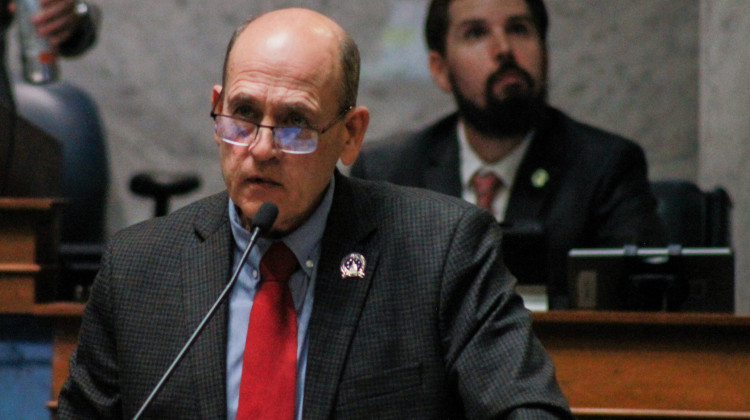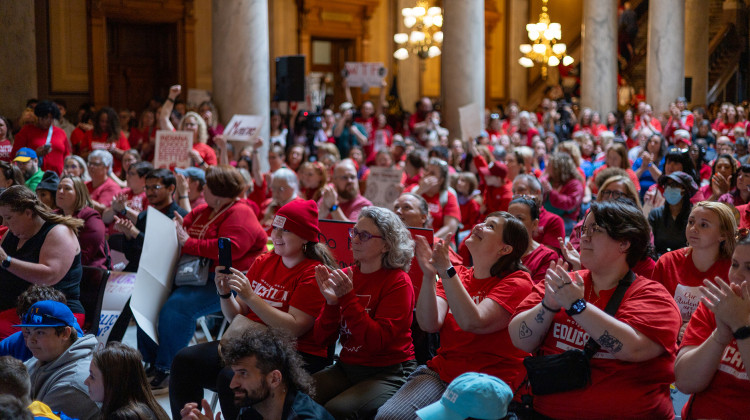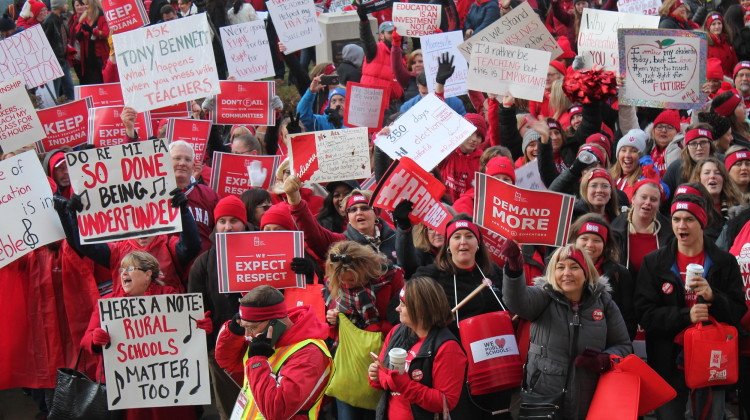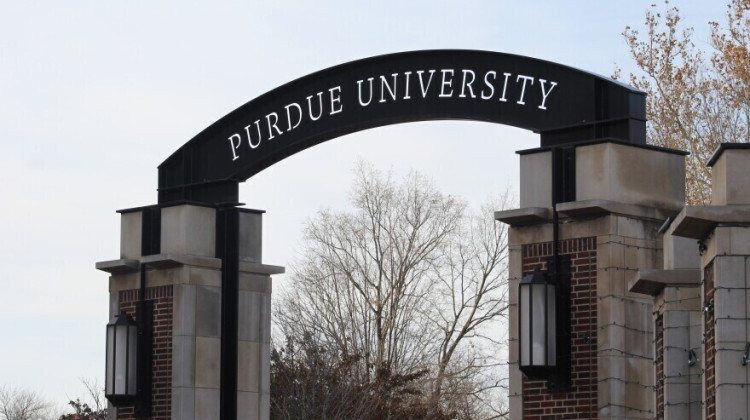
Sen. Gary Byrne (R-Byrneville) is the author of SB 287, which would force school board races in Indiana to become partisan.
Brandon Smith / IPB NewsIndiana school board races would become partisan under a bill advanced by a Senate committee Monday — stoking fears of politicizing school board elections.
Sen. Gary Byrne (R-Byrneville), SB 287’s author, is a former school board member. He said he believes school boards are already partisan, but “hidden under the radar.”
“Voters are just unsure on who to vote for and they’re always asking, ‘Well, which one’s the Republican, which one’s the Democrat?’” Byrne said.
The measure would require school board candidates to run in partisan primaries if they want to run as Democrats or Republicans.
Candidates could run as independents in the general election. But while under current law any candidate must simply get 20 signatures from voters in their district to be eligible for the ballot, the bill would make independent candidates secure hundreds or even thousands of voter signatures.
Two dozen people testified against the bill, including several current school board members from around the state.
Some raised concerns that people would be barred from boards by federal and state laws that prevent certain government employees from serving in political positions.
East Allen County Schools Board Member Jenny Blackburn said that would exacerbate an existing problem.
“This last school board election, none of us were opposed,” Blackburn said. “There are not a lot of people — as big as our county is — there are not a lot of people running.”
Join the conversation and sign up for our weekly text group: the Indiana Two-Way. Your comments and questions help us find the answers you need on statewide issues, including our project Civically, Indiana and our 2025 bill tracker.
Others, like Nan Polk from New Castle Community Schools, said injecting partisanship into school board elections would affect staffing and policy decisions.
“So, will loyalties be political or will we put students’ needs first?” Polk said.
READ MORE: Conservative politics drive fight for control of Indiana’s school boards
Only one person, besides Byrne, testified in favor of the bill: Carlin Yoder, representing the Foundation for Government Accountability, a conservative think tank.
He said school board races receive fewer votes than other races on the ballot.
“They have no idea who they’re voting for or the ideology of these members, so they just choose not to vote,” Yoder said.
But Concord School Board Member Mike Malooley said making school board races partisan to solve a voter turnout problem encourages lazy politics.
“Right now, they can corner me at a basketball game and ask me all they want to ask about my beliefs and ideologies,” Malooley said. "When all I need to do, really, is take an R, slap it at the end of my name, and then somebody can just look at it and say, 'Oh, well, he’s got an R, so. This guy can stay home; he doesn’t need to talk to me as a constituent.'"
The Senate Elections Committee sent the bill to the full Senate by a 6-3 vote, though multiple members who voted for the measure said they might not do so again on the floor.
Brandon is our Statehouse bureau chief. Contact him at bsmith@ipbs.org or follow him on Twitter at @brandonjsmith5.
 DONATE
DONATE






 Support WFYI. We can't do it without you.
Support WFYI. We can't do it without you.